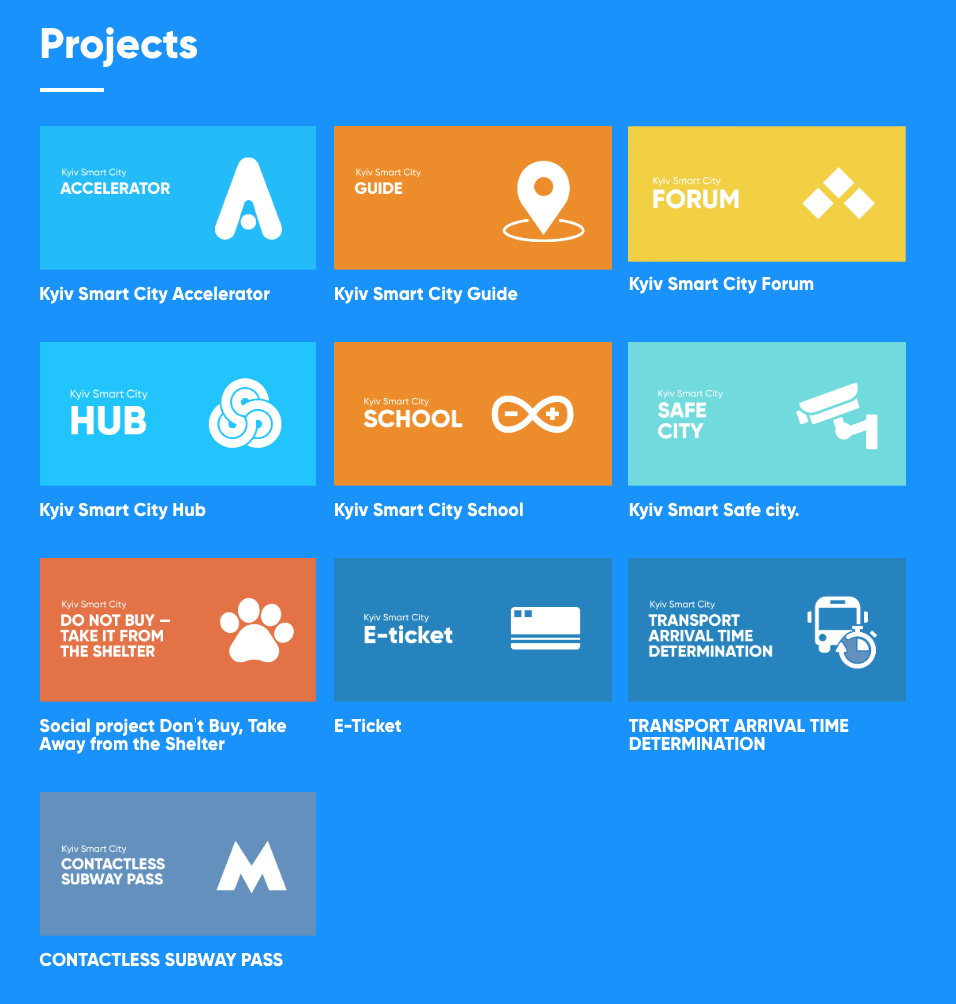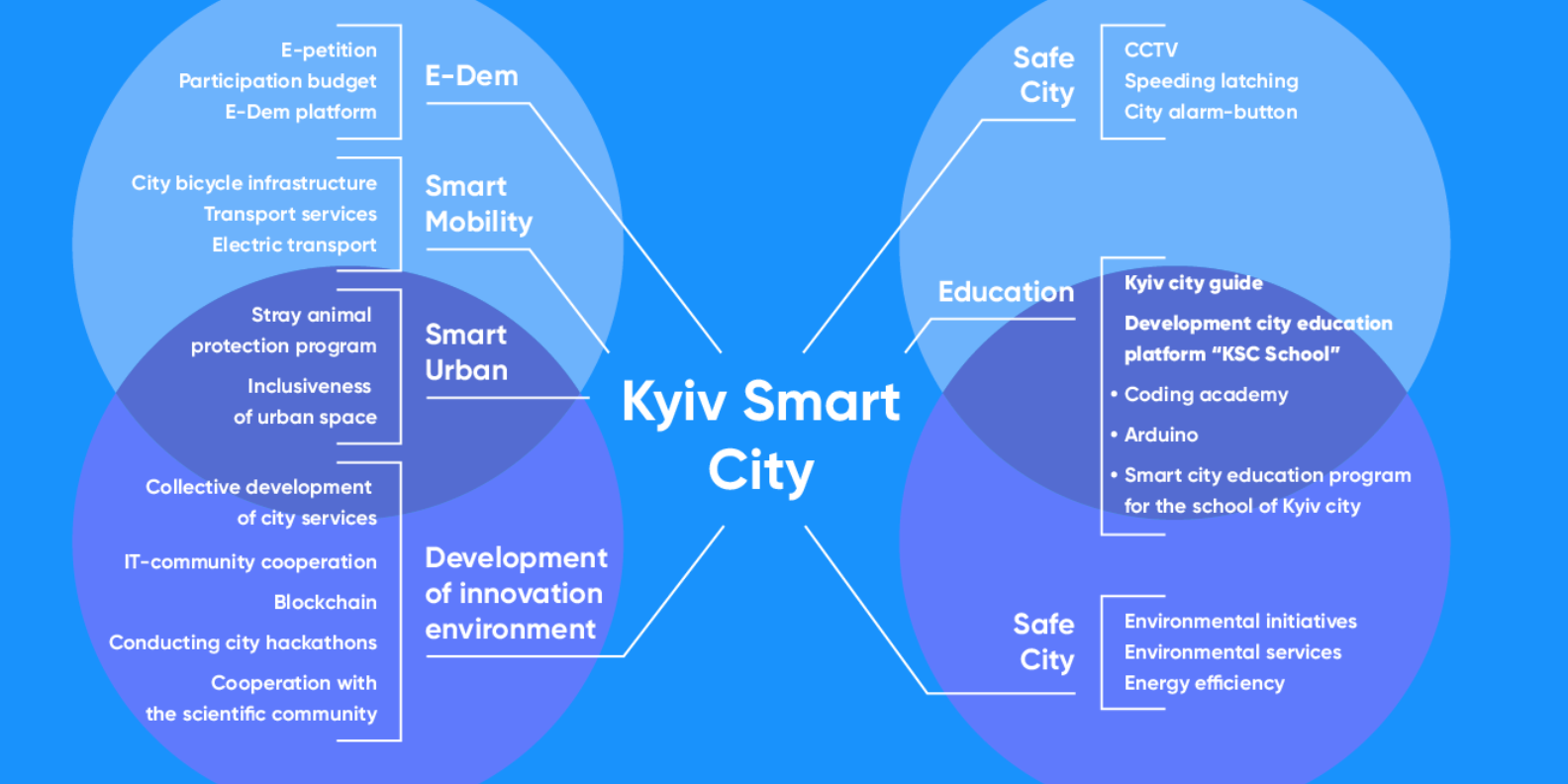Kyiv Smart City Initiative: Developing Smart Infrastructure and Participatory Democracy in Ukraine
Background
Following the 2014 Ukrainian Revolution of Dignity, wherein citizens demonstrated the traditions of freedom and democracy in Ukraine, municipal governments started changing. As citizens began organizing within small communities, demands for new administrative procedures emerged; in particular, Kyiv citizens wanted to establish an open-budget platform to see how city finances were allocated by the administration.
Based on the success of this project, organizers, including Project Coprdinator Yaroslava Boyko, pushed forward with the Kyiv Smart City Initiative in 2015, which outlined a four-year technology development plan for the City of Kyiv. Based on the input from 1,500 citizens, the priorities for this project were identified, which included: open-government, transportation, safety, and education. As a result, these areas were adopted by the city council within an official document, outlining the overall aims of the Kyiv Smart City Initiative.
Development, Goals, and Processes
Adhering to these official guidelines, the initiative launched a participatory budgeting platform in 2015; however, citizens proposed only four projects due to a lack of trust in government. To address this issue, the Kyiv Smart City Initiative created workshops through crowdfunding – whereby citizens and organizations donated money to create a hub for the initiative. Under the legislative law of participatory budgeting, city administrators and over 100 NGOs attended four workshops to determine how best to establish participatory budgeting within Kyiv.
After evaluating and incorporating the feedback from participants, citizens became significantly more involved with city budget processes. Now, roughly $160 million is allocated to city projects – 4x more than the initial participatory budget – and over 1,200 projects were proposed by citizens.
Thus, beyond the development of digital tools and systems for e-governance and participatory democracy, a primary function of the Kyiv Smart City Initiative is explaining to citizens how they may participate in city governance and motivating the people of Kyiv to submit and vote for budgeting proposals online. As a component of this process, the initiative launched the Kyiv Affiliate School in December 2018, which teaches children the basics of coding and the importance of digital technologies.
Beyond participatory budgeting and education, the initiative has also launched an entrepreneurial project accelerator, which allows beginning and established entrepreneurs to submit ideas for invigorating the economy in Kyiv. Here, proposals are submitted via online portal and, once collected, city council members assess and determine the feasibility of each. If accepted, experts and collaborators work to incorporate these solutions as components of the city infrastructure.

One such proposal included the prototype for a mobile application – accepted and launched in Summer 2019 — which connects citizens to various e-government and participatory processes, including e-ticketing and an online portal for paying utility service bills. In addition, citizens may pitch and vote on proposals for additional mobile services, such as the incorporation of a city map, which received over 26,000 votes. Based on the number of votes and priority of these proposals (i.e., based on the official legislative guidelines described earlier), developers decide the order in which additions are made.
Overall, the Kyiv Smart City Initiative is not simply a platform for citizen communication, it has become a brand for democratic innovation, with virtually all city administration managers involved in some capacity.
Challenges
While the Kyiv Smart City Initiative has been highly successful, it has encountered some challenges. Namely, there exists a large gap between generations, such that members of older generations (e.g., over 50 years old) remain skeptical of new technologies and have therefore been slower to adopt them.
Next Steps
Next steps for the Kyiv Smart City Initiative include sharing its experiences and procedures with other Ukrainian cities. training, providing support, expertise, etc.; this process also includes the streamlining of existing processes and establishing smart infrastructure within Kyiv and other cities.
In addition, the initiative facilitates educational courses where older generations (i.e., 50+) are taught how to utilize new technologies and participate in participatory processes online by members of the younger generation. Moving forward, the initiative plans to expand these workshops in order to overcome challenges faced by the aforementioned generational gap in Ukraine.
Finally, the Kyiv Smart City Initiative is exploring how best to introduce artificial intelligence within existing and future democratic innovations and smart infrastructure — research for which is currently underway and is slated for release in 2020.
Contact
Yaroslava Boyko, Coordinator of the Kyiv Smart City Initiative
yaroslava@kyivsmartcity.com

